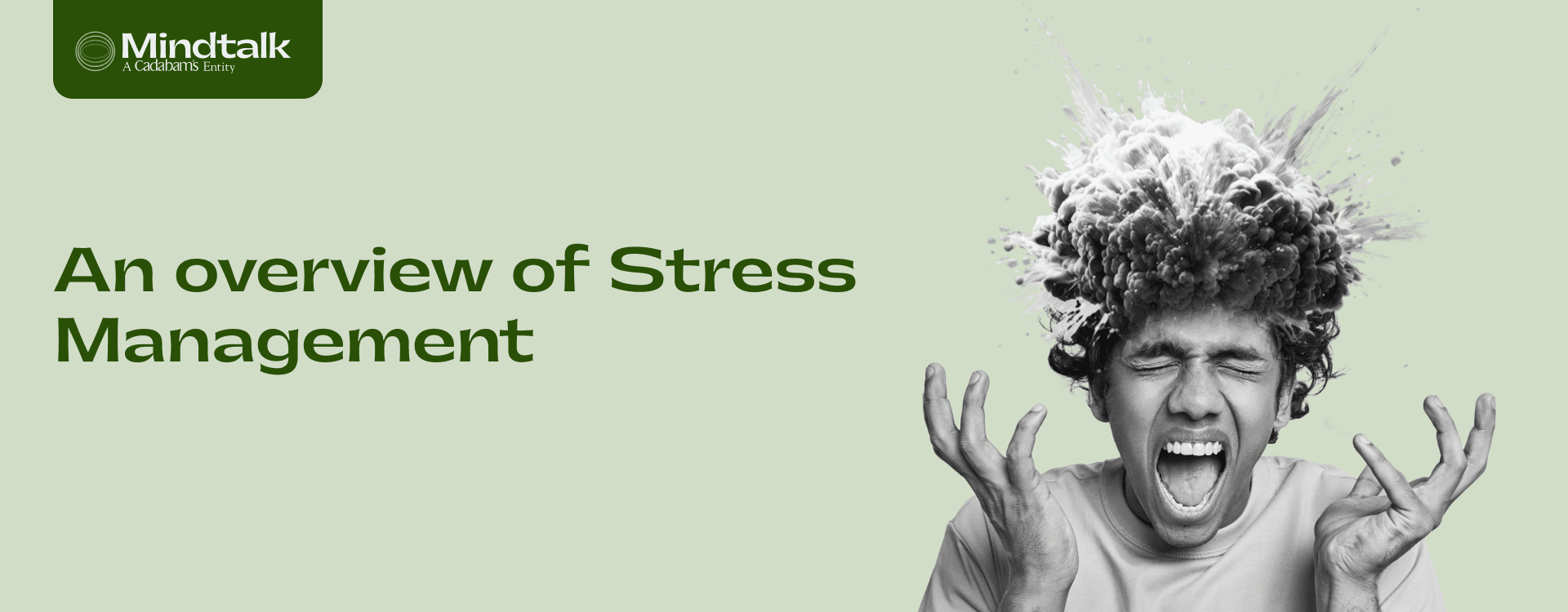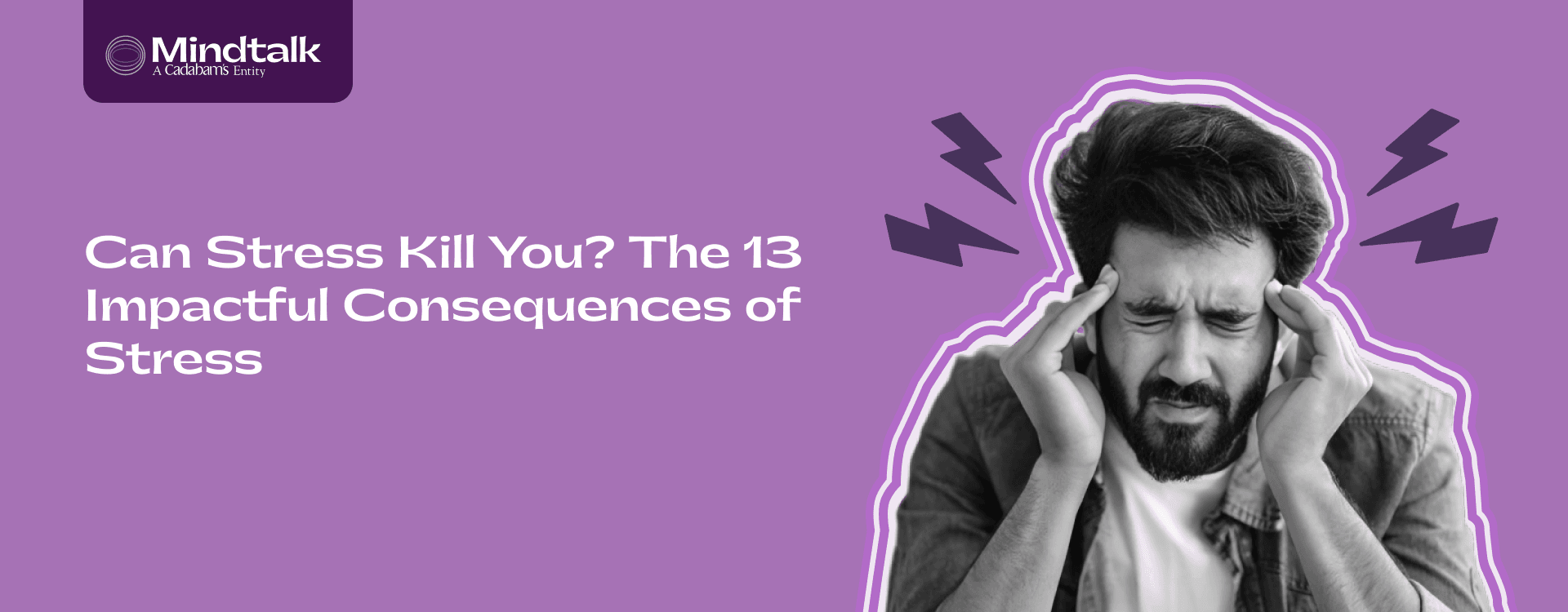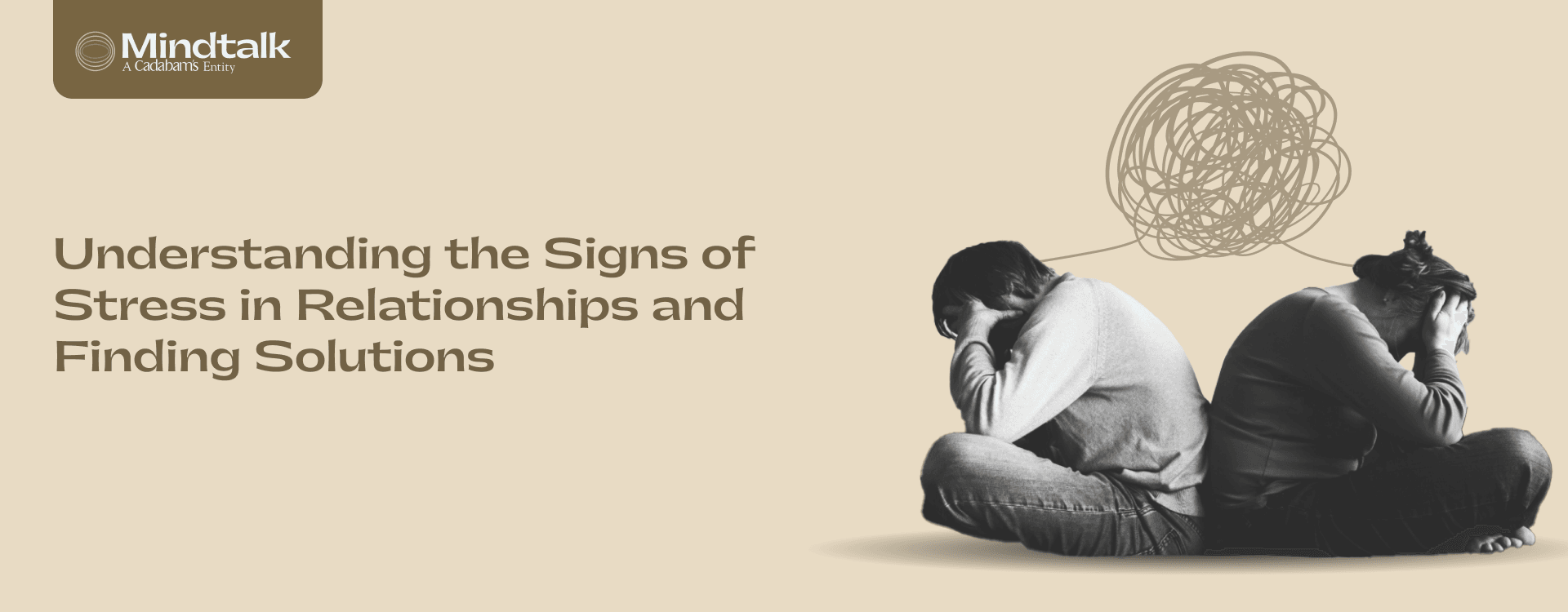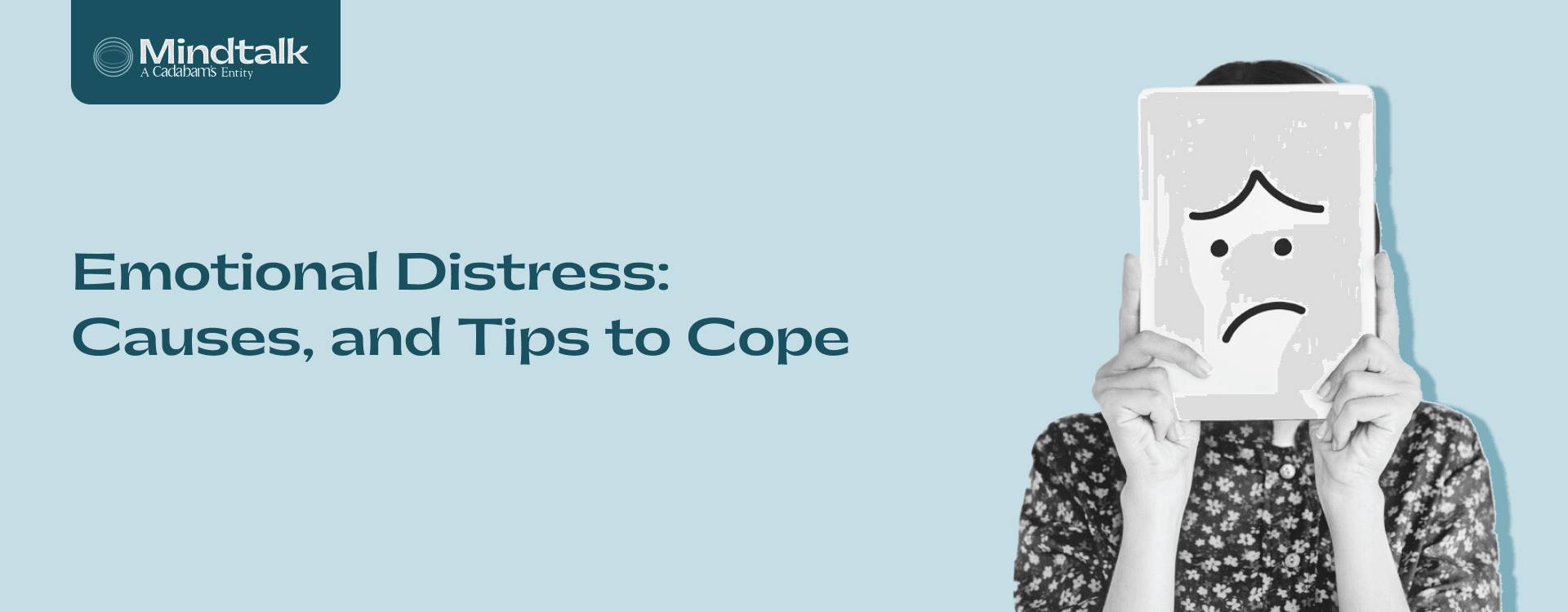Emotional Distress: Causes And Tips To Cope
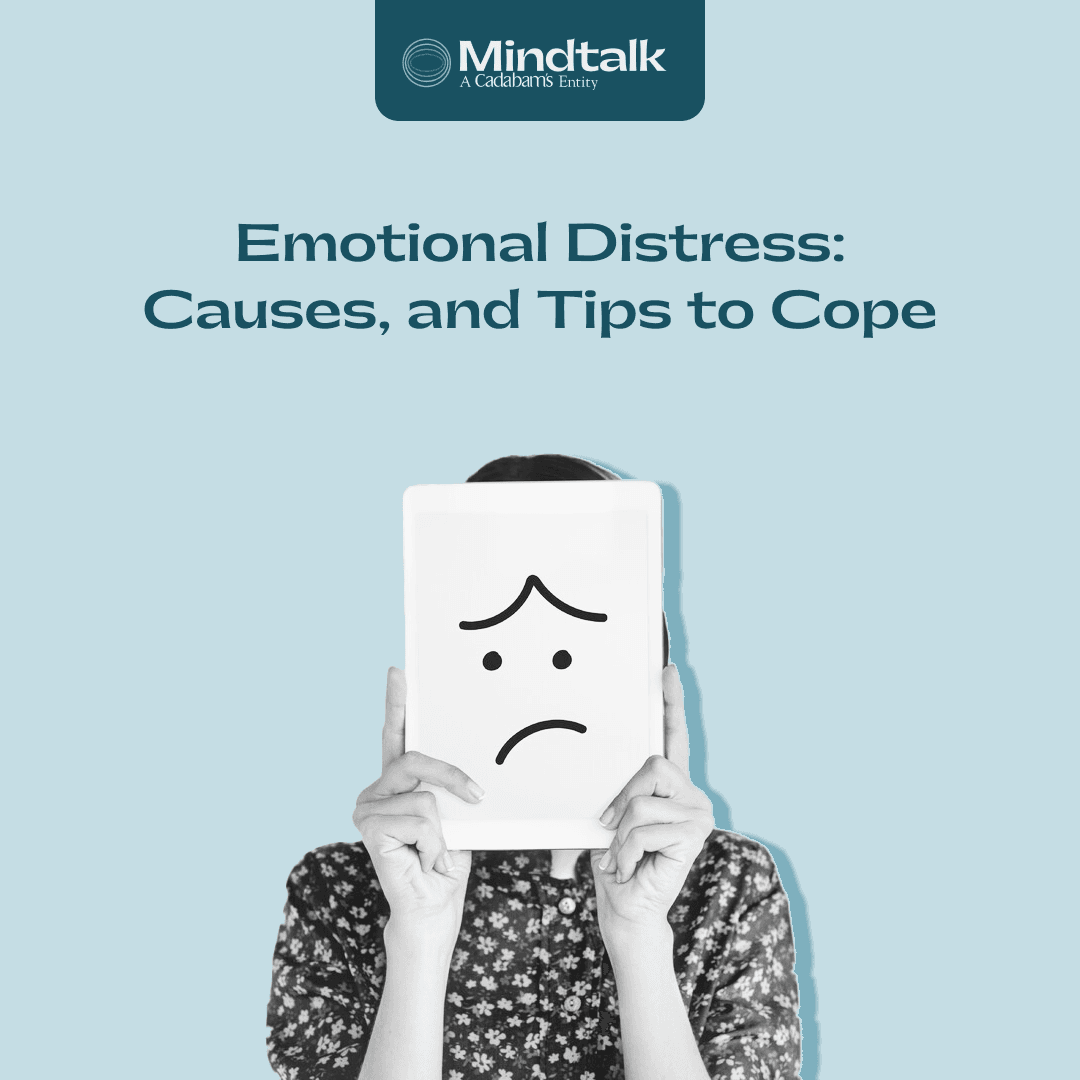
Everyone experiences emotional distress in different ways, and its symptoms vary from person to person. Irrespective of the symptoms one may have, prolonged emotional grief or despair can impact your life in numerous ways. So, within the confines of this blog, let’s discuss everything you need to know about emotional distress.
What Is Emotional Distress?
Emotional distress is a prolonged feeling of negativity, discomfort, and despair that starts to disrupt your daily life. Feeling happy or sad is part of our living, these are healthy emotions that keep us moving forward in life. However, when sad and negative feelings outnumber positive feelings, it might indicate underlying conditions and it affects individuals differently. Now let’s understand its effects and some common symptoms.
Psychological Stress Effects
Myriad studies have shown that experiencing stress for a long period of time can influence health adversely. It can cause mental conditions such as depression, anxiety, and confusion. Headaches, sleep trouble, and bowel movement issues are some of the physical impacts of stress.
It is also scientifically proven that untreated chronic stress can lead to conditions such as high blood pressure, heart disease, weakened immunity, obesity, etc.
Common Symptoms And Signs
Emotional distress is subjective and unique to each individual, and how they react to the challenges may differ based on their personality. It manifests in various ways; however, there are a few common symptoms, and these are:-
- Sleep disruption
- Change in eating habits
- Withdrawal from loved ones
- Fatigue
- Stomach aches, headaches, back pain
- Substance abuse
- Feeling of hopelessness
- Unusual irritability
- Constant worry
Causes Of Psychological Distress
The causes of psychological distress differ broadly and most of the time, it occurs due to a combination of factors. However, a few common causes of psychological distress are:-
Work Related
- Job dissatisfaction
- Pay inequality
- Job security
- Work overload
- Toxic work culture
Personal Life
- Traumatic events
- Unexpected changes
- Issues with Relationship
- Poor socialization
Besides, some studies have found that people who munch on unhealthy diets are more prone to develop psychological distress than people who follow healthy diets. In another study, researchers found that goal conflicts, such as goals that are difficult to pursue and goals that individuals are unsure how they feel about can cause emotional distress.
How Can Psychological Distress Impact Daily Life?
When someone is going through psychological distress, it impacts their life in many ways, however, these impacts are classified majorly into two categories, and these are:-
Physical Health Consequence
Experiencing emotional stress can influence your physical health in numerous ways. It can weaken your immunity, making you more susceptible to illnesses, and it can cause chronic conditions like heart disease and high blood pressure. It can also cause sleep disturbance, constant headaches, stomach aches, etc.
Mental Health And Well-Being
Psychological distress directly impacts your mood and motivation, which leads to emotions such as sadness, hopelessness, and lack of interest in activities and things you enjoyed earlier. It also impacts your cognitive functions, making it difficult to concentrate, remember, and make decisions.
Ways To Manage Emotional Distress
Managing emotional distress is very important as it allows you to reconnect your mind and body, helping you relax. When the mind is relaxed you can pass through tough phases of life without feeling overwhelmed. So, here are some effective ways you can handle your emotional distress.
Find A balance
Indeed, life is full of happenings, with our daily routine and work schedule we hardly give enough time for just being ourselves. Thus, finding a balance between work, daily tasks, and personal time is important as it paves the path for a brighter future.
Keep A Journal
Keeping a journal helps you keep things in order, especially when you feel things aren’t going the way you want. Penning down your daily experiences helps you understand your thought process and how you feel about certain situations, and it serves as a stressor coping mechanism. So, setting aside writing time can help you de-stress and wind down.
Eat well-balanced Diet
We all know the goodness of eating a well-balanced diet. Adding foods rich in fiber, protein, healthy fats, etc can help you tackle chronic diseases like heart disease, obesity, and type 2 diabetes. On the other hand, having inadequate food can lower your blood sugar, leading to mood swings.
Treatment Options For Psychological Distress?
Now that you have understood psychological or emotional distress, its impact, its symptoms, and effective ways to manage it, let’s examine some of the treatments available for it.
Psychotherapy
Psychotherapy is an evidence-based method to treat individuals experiencing emotional challenges. Under this approach, a psychiatrist, psychologist, or any other mental health specialist talks to you. Through this personal interaction, mental health professionals help you identify the root cause of your stress and then work toward changing unhealthy thoughts, emotions, and behavior.
Cognitive behavioral therapy (CBT)
CBT is one of the types of psychotherapy wherein mental health professionals help you understand your emotions and thoughts. The therapy aims to show you how your emotions and thoughts influence your behavior and teach you coping strategies to override these feelings more realistically and positively.
Electroconvulsive therapy
Depending on the severity of the condition, mental health professionals may recommend electroconvulsive therapy. ECT is a procedure where small electric currents pass through the brain to trigger a brief seizure. Along with psychological distress, ECT has been used for other mental health conditions such as severe depression, schizophrenia, etc. In most cases, ECT is used when other treatments are not working.
Transformative Role Of Mindtalk In Overcoming Emotional Distress
Our mind is a complex entity influenced by situations, events, and personalities, which can evoke a range of emotions. If you are experiencing stress for a prolonged period, it may be a sign of underlying conditions. With the right approach and a few lifestyle changes, you can manage it to a great extent.
However, if circumstances aren’t unfolding as you expected, don’t hesitate to get professional help. At Mindtalk, we specialize in offering tailored mental health services aimed at helping individuals manage their emotional distress effectively. Through personalized approaches and targeted lifestyle adjustments, we equip you with the tools you need to navigate challenging junctures.
Similar Posts
